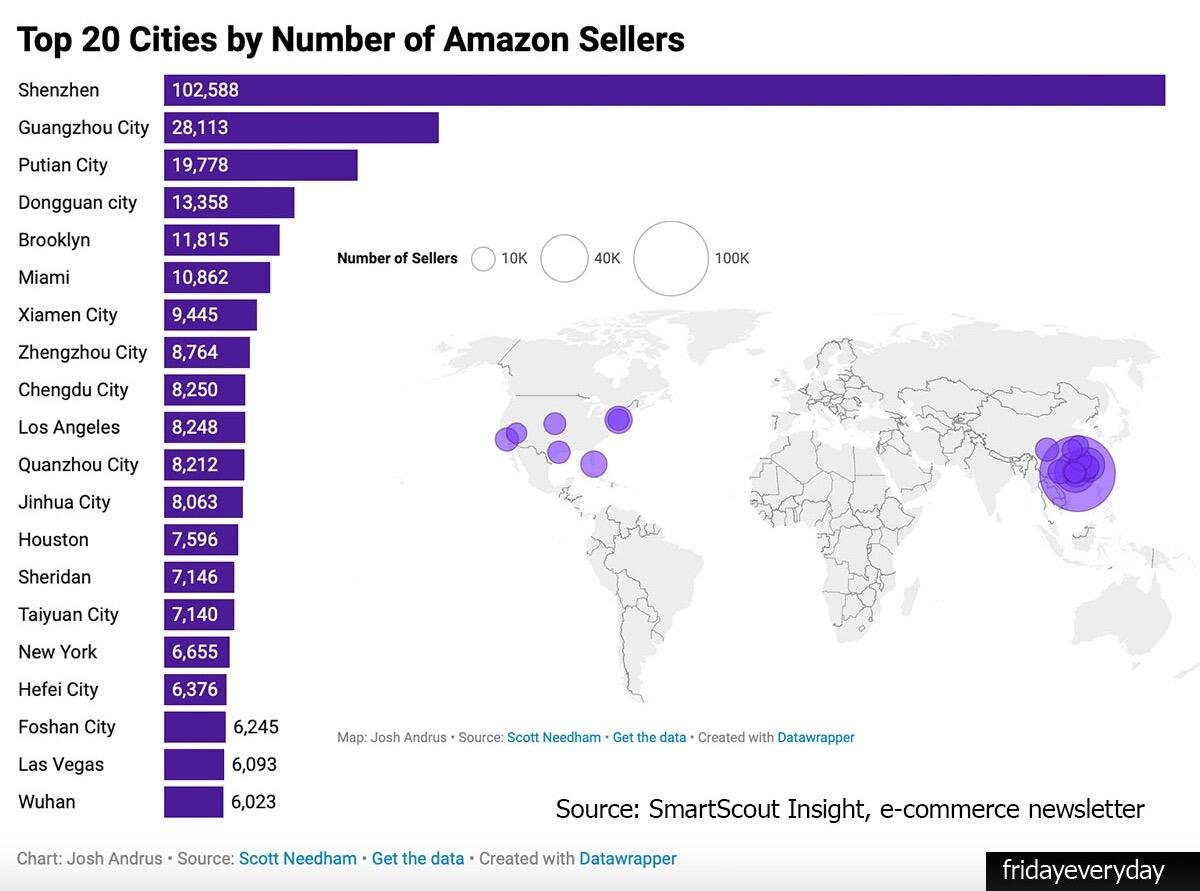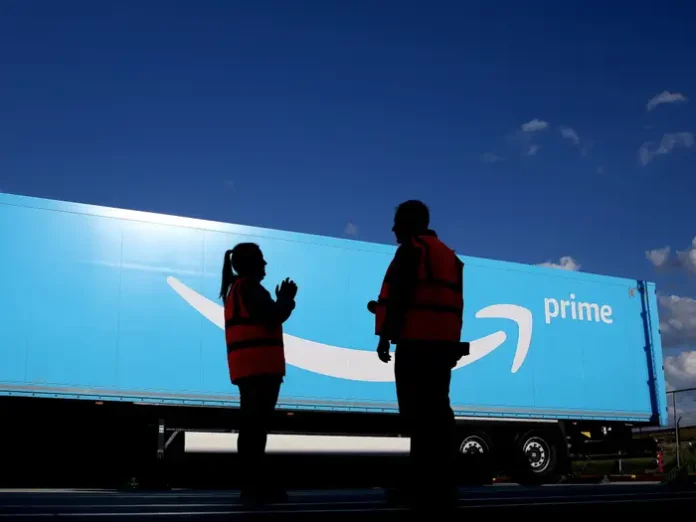Staff Reporter
On Wednesday afternoon, President Trump announced a dramatic increase in tariffs on Chinese imports to 125%, a response to China’s recent hike of tariffs on U.S. goods to 84%.
According to data from SmartScout, a significant number of Amazon’s sellers are based in China. Over the years, these sellers have mastered the art of bypassing intermediaries, utilizing Amazon as a direct-to-consumer platform for affordable products like electronics, toys, household items, and fashion accessories.

However, the sudden surge in tariffs is sending shockwaves through the Chinese seller community. Wang Xin, head of the Shenzhen Cross-Border E-Commerce Association—which represents over 3,000 Amazon sellers—expressed grave concerns to Reuters, stating, “This isn’t just a tax issue; the entire cost structure gets completely overwhelmed.” He added, “It’ll be very hard for anyone to survive in the U.S. market,” calling the tariff war an “unprecedented blow.”
Reuters reached out to several sellers to gauge the impact of this upheaval. Out of five sellers interviewed, three indicated they would need to raise prices for their exports to the U.S., while two planned to exit the market entirely.
Dave Fong, whose product line includes schoolbags and Bluetooth speakers, shared on Thursday that he has increased prices in the U.S. by up to 30%. He also mentioned plans to reduce inventory levels and cut back on Amazon advertising expenses, which previously consumed 40% of his U.S. revenue.
“We can’t rely on the U.S. market anymore, and that’s clear for everyone,” said Dave Fong. “We need to cut investments and shift our focus to regions like Europe, Canada, Mexico, and beyond.”
On Wednesday, reports emerged from Bloomberg indicating that Amazon is significantly reducing its exposure to Chinese products by cutting back on shipments. Trade data from the supply chain platform Sayari confirms that Amazon’s suppliers are largely based in China.
Brian Miller, who has been selling on Amazon from China for seven years, told Reuters, “If things don’t change, I don’t see a viable way to serve the U.S. from China. Manufacturing for the U.S. will need to shift to other countries like Vietnam or Mexico.” He added, “It’s incomprehensible that sellers didn’t heed Trump’s warnings about the tariff war over the past decade—clearly, it’s their loss.”

